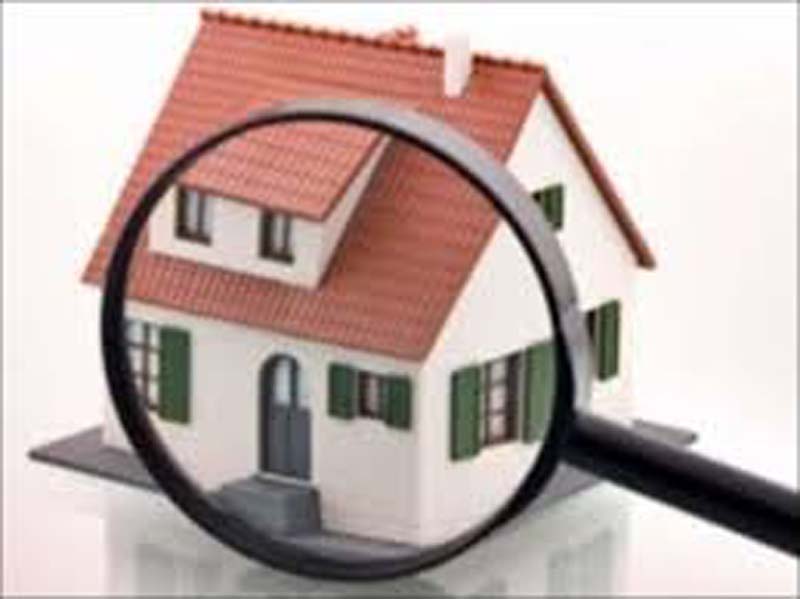Circle rate to be key determinant of value of property
*Step to help in availing Rs 503 cr addl borrowings from GoI
Mohinder Verma
JAMMU, Feb 15: In a move which may not be welcomed by the people but has become compulsion to get additional borrowings from the Centre, the Government of Union Territory of Jammu and Kashmir has started an exercise for the imposition of Property Tax through Urban Local Bodies (Municipal Corporations, Municipal Councils and Municipal Committees).
Moreover, Property Tax Board will be constituted shortly on the recommendations of the Housing and Urban Development Department to deal with all the aspects relating to assessment and valuation of properties across the Union Territory.
This can be gauged from the notification dated February 12, 2021 issued by Dheeraj Gupta, Principal Secretary to the Government, Housing and Urban Development Department, the copy of which is available with EXCELSIOR.
“In exercise of the powers conferred by the Jammu and Kashmir Property Tax Board Act, 2013, the Jammu and Kashmir Municipal Act, 2000 and the Jammu and Kashmir Municipal Corporation Act, 2000, the Government hereby directs that for the levy of Property Tax on any land or building, the value of land as notified in terms of Jammu and Kashmir Preparation and Revision of Market Value Guideline Rules, 2011 (circle rate) shall be a key determinant of the value of the property apart from the nature of construction, the kind of use, the age of the property or any other relevant consideration”, read the notification.
The Property Tax Board, or as the case may be, the Municipal Corporation, the Municipal Council or Municipal Committee concerned shall ensure that the value of land so notified is adequately factored in while determining the unit area values for the levy of Property Tax.
“Imposition of Property Tax is one of the pre-conditions fixed by the Government of India for availing 2% additional borrowings under Atma Nirbhar Bharat Abhiyan and this issue was debated in a number of meetings of the Committee of Secretaries chaired by the Chief Secretary BVR Subrahmanyam in the recent past”, sources said, adding “with the imposition of Property Tax, the J&K Government would be able to get Rs 503 crore from the Government of India”.
In the month of October last year, the Union Ministry of Home Affairs (MHA) had empowered the Government of Union Territory of Jammu and Kashmir to impose Property Tax through the Municipal Corporations, Municipal Councils and Municipal Committees in their respective areas.
The powers were vested by way of several amendments in the Jammu and Kashmir Municipal Act, 2000 and Jammu and Kashmir Municipal Corporation Act, 2000 carried through the Jammu and Kashmir Reorganization (Adaptation of State Laws) Order, 2020.
In the J&K Municipal Act, 2000 whereby the Municipal Councils and Committees have been established, the Ministry of Home Affairs has substituted Sections 72 to 80 and new Section 72 states: “Unless exempted under this Act or any other law for the time being in force, Property Tax shall be levied on all lands and buildings or vacant lands or both situated within the Municipal area. The Property Tax shall be levied at such percentage not exceeding 15 per cent of the taxable annual value of land and building or vacant land or both as the Government may, by notification, from time to time specify”.
Similarly, Section 73 reads: “The taxable annual value of land and building or vacant land assessable to taxes under this Act shall be calculated by multiplying the corresponding unit area value with the total build-up area of a building or the total area of land, as the case may be, minus depreciation, at such rates as may be prescribed, depending on the age of the building”.
However, a proviso has been incorporated vide which the Municipality may, after passing a resolution, fix a lump sum amount not exceeding the sum payable as annual tax for certain categories of properties. However, the resolution shall come into effect only after it is approved by the Government.
The Property Tax payable shall be reduced by 25 percent in respect of a self-occupied building used for residential purpose and such class of self-occupied non-residential building as may be notified by the Government on the recommendation of the Municipality. Moreover, there is a provision vide which a person liable to pay the Property Tax shall pay the same in two equal instalments.
“Every owner or occupier, who is liable to pay Property Tax, shall every year submit to the Executive Officer or any officer authorized by him in this behalf a return in the prescribed form within the stipulated period and in the prescribed manner”, the new Sections read. Moreover, there is a provision for scrutiny of the return filed and in case of non-compliance action will be initiated.
Similar provisions have also been incorporated by way of amendments in Jammu and Kashmir Municipal Corporation Act where-under the Jammu and Srinagar Municipal Corporations have been established.
As per Jammu and Kashmir Property Tax Board Act, the Government may by notification establish the Board, which shall be corporate body and competent to acquire, hold and dispose of any property both movable and immovable to enter into contracts and to do all things necessary for the purposes of the Act.
The Board shall consist of a Chairperson and such number of members not exceeding two as may be determined by the Government. The Chairperson shall be the person who is or has been an officer of the Government not below the rank of Commissioner/Secretary.
The other members shall be persons having knowledge and experience in the field of municipal administration, valuation of properties, accountancy, law and management.


